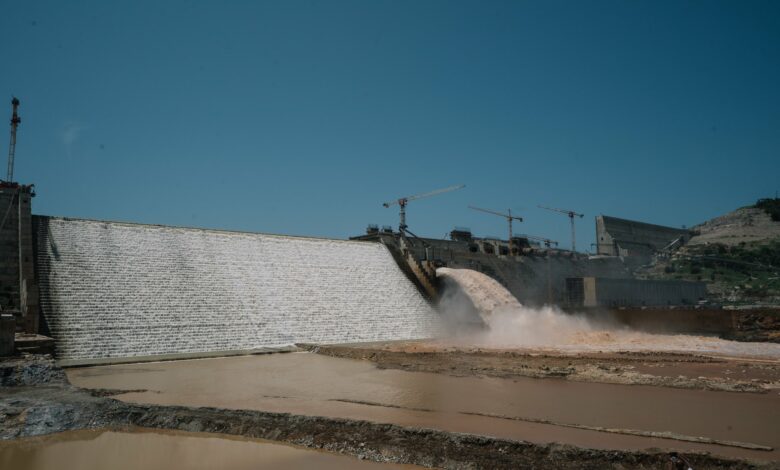
Professor of Geology and Water Resources at the Cairo University Abbas Sharaky revealed new developments in the Grand Ethiopian Renaissance Dam (GERD).
On his Facebook account on Friday, Sharaky noted the opening of the middle gate of the upper spillway of GERD after the repeated stoppage of the turbines.
He said: “The turbines stopped for about 100 days after the completion of the fifth storage, and as soon as they returned to work a few days ago, they stumbled as usual, which forced Ethiopia to reopen the middle gate of the upper spillway with six gates, with a flow rate of about 50 million cubic meters per day, which is the same amount of daily revenue at the GERD.”
“Therefore, the Renaissance Dam’s stock remains stable at 538 meters above sea level, with a total of 60 billion cubic meters since September 5,” Sharaki added.
The water expert explained that “Egypt has no interest from operating or stopping the turbines in the past months, as water flows from either the turbines or the spillway.”
‘There will be no leniency’
Tensions have risen between Cairo and Addis Ababa after the failure of all negotiations over the Nile River waters due to the GERD project.
Egyptian Foreign Minister Badr Abdel-Aati stressed in September that there will be no leniency, tolerance or concession regarding the Nile River’s water, as it is an existential issue directly related to Egyptian national security.
He stressed that not a single drop of Nile water can be squandered, because what his country is getting now is not enough.
Earlier in September, Abdel-Aati addressed a letter to the President of the United Nations Security Council rejecting the recent statements of Ethiopian Prime Minister Abiy Ahmed regarding the fifth phase of filling GERD.
The letter renewed Egypt’s categorical rejection of Ethiopian unilateral policies that violate the rules and principles of international law, and constitute a clear violation of the Declaration of Principles agreement and the Presidential Statement of the Security Council on September 15, 2021.
He added that Ethiopia seeks to legitimize its unilateral policies that contradict international law, and hide behind baseless claims that these policies are based on the right of peoples to development.




